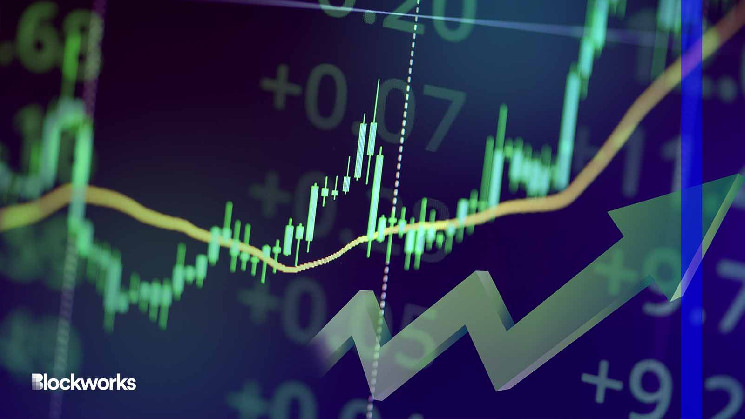Worldcoin’s long-anticipated $WLD token has soared in its first 24 hours of trading, largely on the back of market making activity that some claim rises to the level of fraud.
Since its launch on Monday, $WLD has climbed as high as $3.30 per token before retreating to $1.91, only to climb back to $2.22 at press time. Multiple observers, however, have claimed that the price action is attributable to market manipulation more so than organic activity.
Prior to the token launch, online commentators often criticized the project for its potential lapses in protecting user biometric data, and characterized its overall ambitions and goals as “dystopian.” Supporters, meanwhile, pointed to the need for a proof-of-humanity tool to help reduce ever-pervasive sybil attacks, among other use cases.
Since the $WLD token launch, the scrutiny has only redoubled. During the course of a Twitter debate with market maker and investor Wintermute CEO Evgeny Gaevoy, investment firm Blocktower founder Ari Paul accused $WLD market makers of “wash trading” and “paid market manipulation.”
He wrote: “I *am* accusing worldcoin of fraud along multiple axes, and I *am* claiming that at least [market makers] here are painting the tape in ways that are illegal if they’re US regulated.”
At the core of the complaints from Paul and others is the initial token distribution for $WLD. Worldcoin was unusually transparent in publishing the details of their deals with market makers, revealing plans to distribute 100 million tokens to the firms relative to just 43 million to retail users at launch. The total supply of $WLD is projected to be 10 billion.
Analysis from Matt Batsinelas of Glass Markets, an analytics platform built to monitor exchange liquidity, shows multiple market maker wallets with 20 million or more tokens in the opening hours of trading, among others with lesser amounts. The terms of the loans to the market makers, including a three-month duration and options with high strike prices, would ultimately incentivize the trading firms to seek a high initial price.
In Batsinelas’ view, the market makers “didn’t do anything wrong,” but simply accepted good deals from Worldcoin, which is ultimately responsible for the initial tokenomics and distribution.
Some observers have harkened back to Alameda-era Solana tokens — often referred to as “Samcoins,” a reference to FTX CEO Sam Bankman-Fried — which also featured low “float,” or low initial circulation, high fully diluted valuation (FDV) tokens.
For instance, despite being potentially compromised in a $400 million hack during the collapse of FTX, the token for the now largely defunct Solana-based and Alameda-incubated DEX, Serum, still has a FDV of just under $1 billion. This is down from as much as $100 billion at its peak.
“This is essentially what Alameda was doing to make a ton of PnL off of these projects,” he added.
While not as extreme, $WLD’s scant initial circulating supply remains tremendously top-heavy, and initial trading has led to a $23.5 billion FDV — good enough for a spot on the top-10 cryptocurrencies by market cap if all tokens were unlocked, all created essentially overnight.
This valuation is comparable to OpenAI at $27 billion, perhaps the most hyped tech company in recent memory, and Coinbase at $23.5 billion, arguably the second most systemically important company in the crypto industry.
The current $WLD supply is overwhelmingly held by market making firms rather than retail traders, and the bifurcation between large and small holders is especially pronounced across chains.
A Dune dashboard from the Worldcoin team boasts 878,000 wallets on the Optimism layer-2 network. However, the total token supply on Optimism is just 177 million tokens compared to Ethereum’s 10 billion, and a Uniswap v3 DEX pool on Ethereum laps an Optimism pool in volume by a factor of more than 10 at $6.2 million versus $572,000.
The Worldcoin team did not respond to a request for comment by press time.
Additionally, signs indicate that token investors with vesting schedules may already be attempting to offload their positions. Blockworks found an over-the-counter desk offering 5 million tokens priced at $1 each locked for 12 months, then vesting linearly over a 24-month period.
While Worldcoin’s landing page claims they have 2 million users, at press time only 8 million of the 44 million in tokens available to retail users have been claimed.
 blockworks.co
blockworks.co
